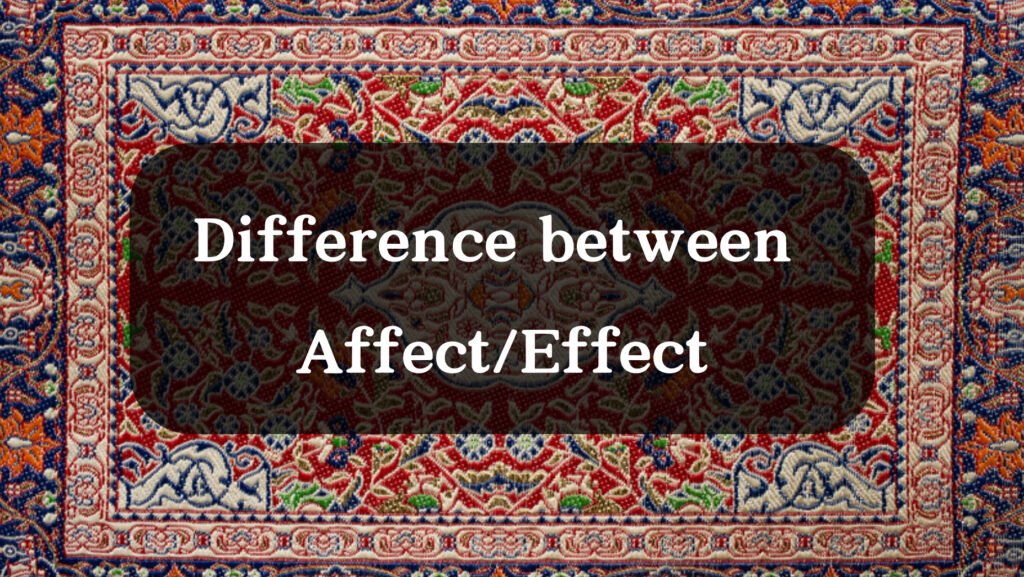
Affect vs. Effect
The verb affect means “to have an impact on” something. Meanwhile, the verb effect means “to bring about” or “to achieve.” In Arabic, these terms are expressed differently:
• To affect is often translated using أثّرَ (يُؤثِّرُ)على/ في.
• To effect is translated using قامَ بـ + مصدر.
Examples:
1. أثّرت الأزمةُ الاقتصاديةُ تأثيرًا شديدًا على دولٍ أوروبيةٍ عديدةٍ، ستعاني من تأثيرِها في مجالاتٍ كثيرةٍ.
“The economic crisis severely affected many European countries, which will suffer from its effect in many areas.”
2. قامَ المديرُ الجديدُ بإجراءِ تغييراتٍ أساسيةٍ في هذه الشركةِ.
“The new manager effected basic changes in this company.”
NOTE: To Affect (Pretend or Feign)
The verb affect can also mean “to feign” or “pretend,” which is less common. In Arabic, this can be expressed in two ways:
1. Using Form VI (تفاعَلَ) verbs:
Example:
تَجاهَلُ أخطاءَهُ.
“She affects (feigns) ignorance of his mistakes.”
2. Using specific verbs like تكلّفَ, تظاهرَ, or ادّعى:
Examples:
• لقد تظاهرَ بالصُّداعِ كي لا يذهبَ إلى الحفلةِ.
“He affected (feigned) a headache in order not to go to the party.”
• تكلّفَ/تظاهرَ بالضَّعفِ حتّى خرجتُ من الغرفةِ.
“He affected (feigned) weakness until I (had) left the room.”
• يدّعي فِقدانَ الذّاكرةِ.
“He affected/feigned loss of memory.”

جزاك الله خيرا
وإياك